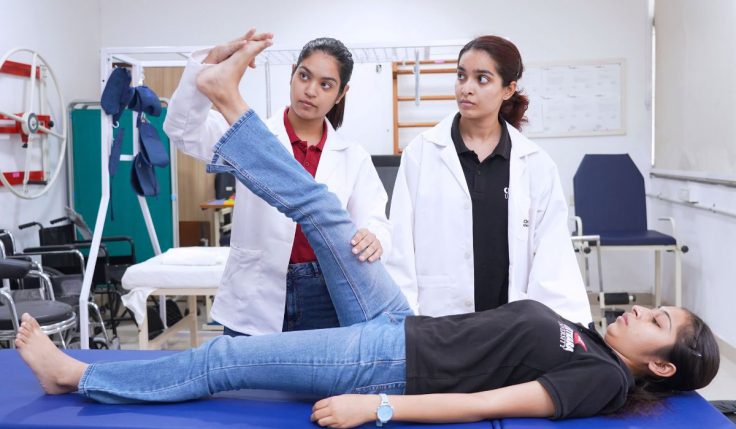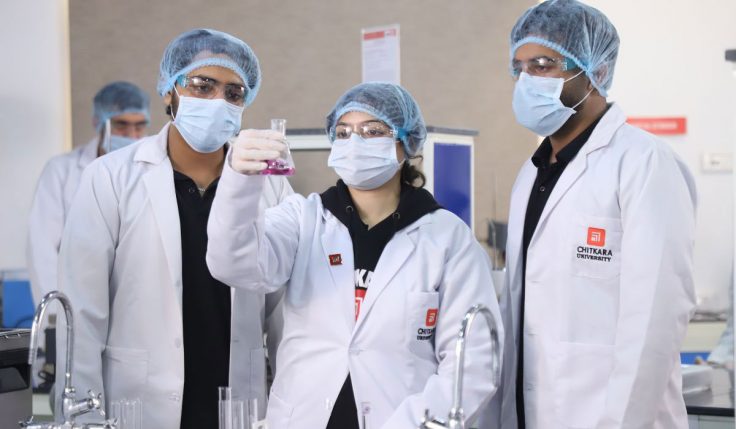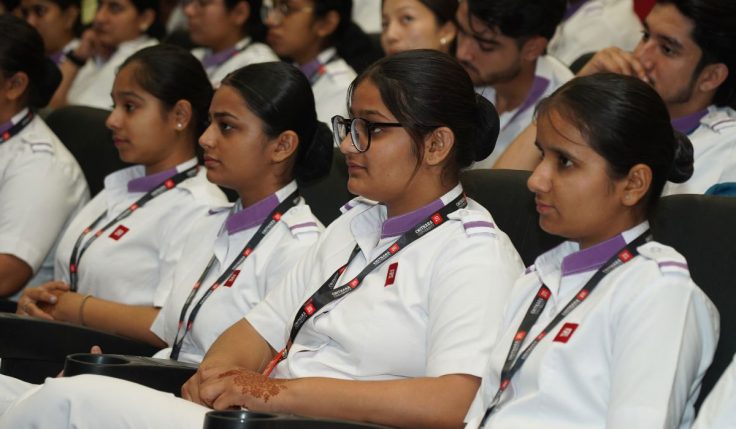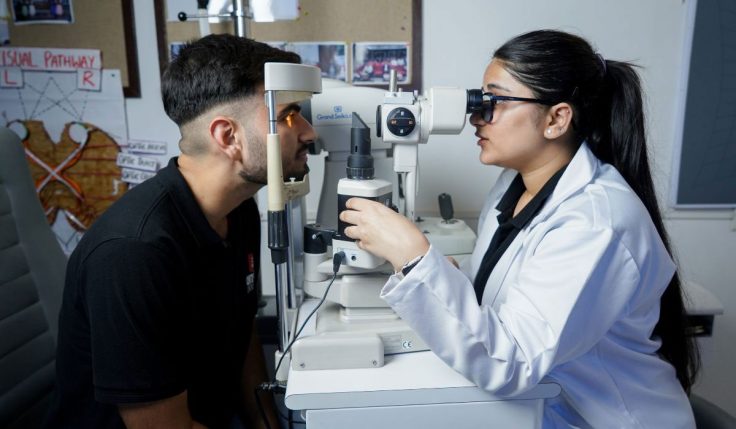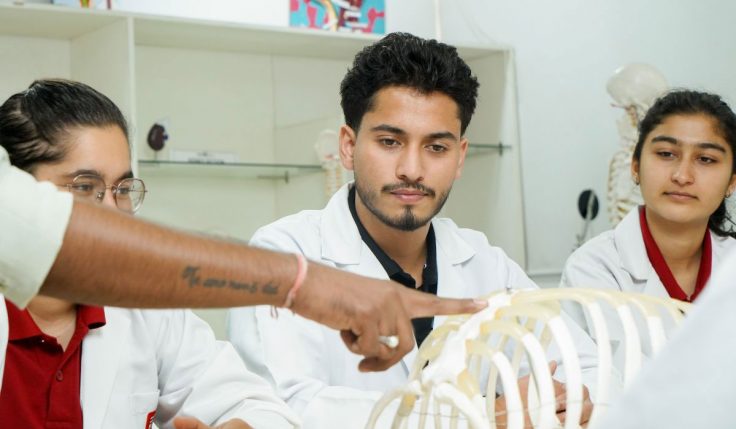A Medical Radiology and Imaging Technologist (MRIT) is a healthcare professional who employs a range of different imaging techniques and sophisticated equipment for producing high-quality images in the diagnosis of disease, assessment of injury, and evaluation of treatment.
For those who are interested in the diagnostic side of the field of medicine, Radiology is a great career. In recent years, the increasing complexity of radiologic procedures has made Medical Radiology and Imaging technology a highly specialised and sophisticated science that requires competently trained personnel to maintain a high degree of accuracy in radiographic positioning and exposure technique. After the completion of a B.Sc in MRIT, you can become capable of taking images using a range of techniques including Diagnostic X-rays, Mammography, Fluoroscopy, CT (Computed Tomography), MRI (Magnetic Resonance Imaging), DEXA (Dual-energy X-ray Absorptiometry), Angiography, etc.
If you are interested in becoming a Medical Radiology and Imaging Technologist keep reading to know more about B.Sc in MRIT and how it can advance your career.
What is a B.Sc in MRIT?
The Bachelor of Science in MedicalRadiology and Imaging Technology is designed to equip students with a comprehensive understanding of radiology and imaging techniques for diagnosing and treating various medical conditions. The program focuses on practical expertise in patient care, imaging modalities, radiography, and radiology technology.
The Chitkara School of Health Sciences offers a four-year program in B.Sc. in Medical Radiology and Imaging Technology (including one year of clinical training/internship) in compliance with the guidelines from Ministry of Health and Family Welfare of India. The program aims to train students with the requisite skills in the area of medical radiology & imaging technology and is taught with a blend of classroom and clinical education.
Students in this program undergo rotational training in various techniques of Diagnostic X-rays, Scanning procedures in CT and MRI, Mammography, Dexa , Special Procedures like barium studies, HSG, RGU, MCU and interventional procedures including patient care and taking care of radiation protection guidelines.
Some of the fundamental topics covered in this program include
- Anatomy and Physiology
- Special Radiographic Techniques and Procedures
- Fundamentals of Physics of Medical Radiology Imaging.
- Interventional Procedures including Patient Care in Diagnostic Radiology
- Quality Assurance and Quality Control in Radiology
- Equipment of Radio Diagnosis
- Basics of Medical Biochemistry and Microbiology
- Radiation Protection Guidelines
Curriculum of B.Sc in MRIT
The curriculum of B.Sc in MRIT offers comprehensive and real-life training essential for success in diagnostic imaging. Chitkara University has partnerships with some of the leading acute care facilities, hospitals, and diagnostic centres throughout the community to offer excellent clinical training experiences. In addition, the solid and long-standing partnership with Fortis Healthcare Limited ensures that the curriculum is industry-aligned and produces sought-after, employable talent.
The B.Sc in MRIT is an industry-endorsed program that helps students develop knowledge and skills needed to perform radiological and imaging diagnostics in diverse settings across India and abroad. It equips students to pursue successful careers in industrial, academic, and research fields within radiological and imaging technology.
Program Highlights of B.Sc in MRIT
Some of the program highlights of B.Sc in MRIT are mentioned below:
- Industry Endorsed Program: The program is strategically designed with an industry-aligned curriculum, taught by qualified and experienced faculty and clinical experts. Students gain essential industry exposure in reputed healthcare organisations such as the Fortis Healthcare Network, developing a problem-solving mindset through clinical exposure to real-world issues. Graduates of this program are well-prepared to adapt to diverse working environments and actively participate in interdisciplinary and multidisciplinary healthcare communities.
- Practical and Hands-on Training: The program includes demonstrative and participatory practicals conducted in well-equipped labs, helping students acquire extensive training and advanced hands-on skills in radiology and imaging. Practicals are performed using the latest equipment in state-of-the-art labs, ensuring that students learn the perfect techniques of imaging procedures. Consequently, students are groomed with professional competencies through a combination of classroom training, practical experience, industrial training, and laboratory work.
- Employment Scope: The curriculum offers comprehensive and real-life training that is essential to becoming successful in diagnostic imaging. The need for educated and professional radiology technologists in hospitals, clinics, and physician’s offices is increasing continuously and the field of radiography also shows higher than average job growth in the future. Once you have completed your degree, you can have lucrative career options before you that include Radiographer, Radiology Technician, MRI Technician, CT Technologist, Mammographer and Application Specialist etc.
Why Pursue MRIT?
There are many reasons to pursue a career in the field of MRIT. We will mention some of them below.
- High Demand: The job market for medical imaging technology is growing rapidly. If you pursue an education in this field at this time then you will be able to make the most out of the career opportunities in this field.
- Lucrative Salaries: Medical imaging technologists can make the most of competitive salaries with many opportunities for career growth.
- Making a Difference: You will be able to play a vital role in patient care by providing important diagnostic information for accurate treatment decisions.
- Technology and Innovation: The field of medical imaging is consistently evolving at a great speed which means that it is also full of opportunities to work with cutting-edge technology.
- Diverse Career Options: Graduates can find employment opportunities in hospitals, research institutions, diagnostic centres, and even the medical equipment industry.
Scope of B.Sc in MRIT
In India, there is an increasing demand for skilled medical imaging professionals because of the growing healthcare sector and rising awareness about advanced diagnostic techniques. Graduates of the B.Sc in MRIT are in high demand across various healthcare settings including hospitals, diagnostic centres, imaging clinics, research facilities, etc.
Also, read this blog post: Exploring the Wonders: What Can You Learn in Medical Radiology?
With the growing advancements in medical technology and the prevalence of diagnostic imaging, the demand for skilled MRIT professionals also keeps rising. Once you complete your degree in this field, there are many career opportunities open to you. Some of them include the ones mentioned below.
- Radiographer
- Radiological Technologist
- X-ray Technologist
- MRI Technologist
- CT Scan Technologist
- Mammography Technologist
Become a part of Chitkara University and embark on a fulfilling journey towards a successful career in Medical Radiology and Imaging Technology.

